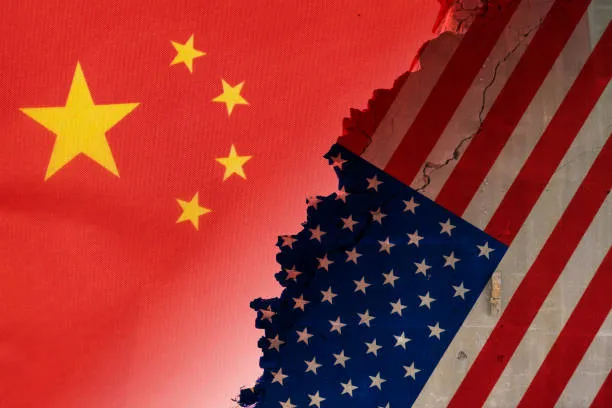Multiple measures passed by lawmakers during Texas’ 89th Legislative Session seek to combat the threat of the Chinese Communist Party.
Chuck DeVore, chief national initiative officer at Texas Public Policy Foundation, told Texas Scorecard that during this past legislative session, he saw Texas start to seriously respond to the growing geopolitical danger.
“It’s not like this is a theoretical threat,” said DeVore. “This is an immediate threat staring Texas and the rest of America right in the face.”
According to a threat assessment conducted by State Armor, a non-profit committed to helping states combat global security threats, the CCP is developing its military strength to undermine U.S. national security.
“China is seeking to infiltrate all aspects of America’s domestic society to threaten our security and freedom,” author Robert C. O’Brien writes in the assessment. “The perilous situation our nation now faces did not happen quickly. Rather, it is the result of decades of careful patience and planning on the part of the CCP.”
State Armor CEO Michael Lucci told Texas Scorecard that in 2022, President Joe Biden and the Director of National Intelligence issued a memo stating that the CCP has a plan to target states.
“The threat at the state and local level is in each state house,” said Lucci “It’s in local communities, and so that is a large seam in our system that they openly try to exploit.”
Several pieces of legislation passed by lawmakers focus on addressing the threats posed by China. These measures now await Gov. Greg Abbott’s approval.
Land
Senate Bill 17, a priority of both the Texas GOP and Lt. Gov. Dan Patrick, bans ownership of Texas land by countries deemed a danger to national security by the U.S. director of national intelligence or the governor.
Two other measures, Senate Bill 667 and House Bill 34, prohibit certain government agencies from using state funds to invest in Chinese institutions or in foreign countries designated as “countries of concern,” specifically China, North Korea, Iran, and Russia.
Senate Bill 2312 establishes the Texas Advisory Committee on Geopolitical Conflict to assess and alleviate risks to Texas’ infrastructure and supply chains during a global conflict. The committee is tasked with overseeing various exercises, also known as stress tests, to determine how Texas should respond to different types of conflict.
The measure also directs the advisory committee to develop state security strategies and provide detailed information to the governor, as well as a yearly public report, subject to security review.
Lucci said that a stress test examining crucial infrastructure and supply chains should be conducted by every state to prepare for a geopolitical conflict.
“You will find problems, and you’re going to solve those problems, but you have to go in with a mindset that China will initiate a conflict,” continued Lucci. “It’s going to cause problems here. Let’s get ready for that.”
Red Power, a Texas Scorecard documentary, explores how Texas’ push for wind and solar power generation benefits China while posing a threat to national and economic security.
Other Battlespaces
Lawmakers also passed House Bill 150, which creates the Texas Cyber Command. A state agency and component institution within The University of Texas System will be established to prevent and respond to cybersecurity threats against Texas infrastructure and government systems.
The measure was signed into law by Abbott on Monday in San Antonio.
“Texas uniquely created the Cyber Command,” stated Lucci. “The combination of those two things, the Cyber Command and the stress test like this—is a state that’s really getting ready for that risk.”
Other measures that were passed by lawmakers to help the state guard against CCP threats include Senate Bill 1349, which criminalizes transnational repression, and Senate Bill 2514, which establishes a hostile foreign adversaries unit in DPS.
House Bill 119 increases oversight and restrictions on lobbyists acting on behalf of a foreign adversary, while House Bill 127 creates comprehensive measures to protect Texas institutions of higher education from foreign adversaries and the risk of espionage, intellectual property theft, and undue foreign influence.
House Bill 128 restricts Texas governmental entities—including state agencies, cities, counties, and other political subdivisions—from entering into, maintaining, or renewing “sister-city” agreements with foreign adversaries or communities located in such countries. The concern is that the CCP will use these agreements to influence local and state governments, making them more dependent on Chinese companies and interests.
House Bill 130 deals with securing Texans’ genetic material, and House Bill 132 protects information regarding state responses to hostile acts from foreign adversaries.
“If there is a playbook for what a governor should do, Greg Abbott wrote it this year,” said Lucci. “If there’s a playbook for what a legislature should do, the Texas legislature wrote it this year.”
No ads. No paywalls. No government grants. No corporate masters.
Just real news for real Texans.
Support Texas Scorecard to keep it that way!





